© Car Adviser 2024 - All rights reserved.
> Home / Buying A Car / Best Used Electric Cars Under £10,000
We’ve compiled a list of the best electric vehicles that you can buy for under £10,000.
Like it or not, electric cars will be the future of motoring, with that future is coming quickly. With new diesel and petrol cars being banned in the UK from 2030, hybrid or electric vehicles will be the only new cars available to motorists.
Of course, by then, electric cars will be great alternatives to traditional fuel types, and even current models offer similar performance and mileage.
In fact, many electric cars are already becoming the desirable option, thanks to their low emissions and cheap maintenance costs, as charging these vehicles is typically less than fuelling.
The only issue for many motorists in the UK is that electric cars are still a bit expensive when buying new. You can always choose to pay for an electric vehicle with a finance plan that makes things a bit more affordable; however, if you’re looking to save a lot of money, you can always turn to the second-hand market.
Although electric vehicles are relatively new, there’s still a good amount of these cars that you can buy used. Plus, many of them can be picked up for under £10,000, helping them to be budget-friendly.
Here at Car Adviser, we’ve put together a list of the best electric vehicles that we could find that often have a price point under £10,000. These vehicles offer great value and could help you get your first electric vehicle.
If you’re looking for any other type of car, we’ve also got you covered here on Car Adviser. We have lists of the best vehicles for various price points and categories, and you can also find multiple articles and resources about how to look after your car and more here on Car Adviser.
These are the top 10 electric cars that you can buy in the UK for under £10k:
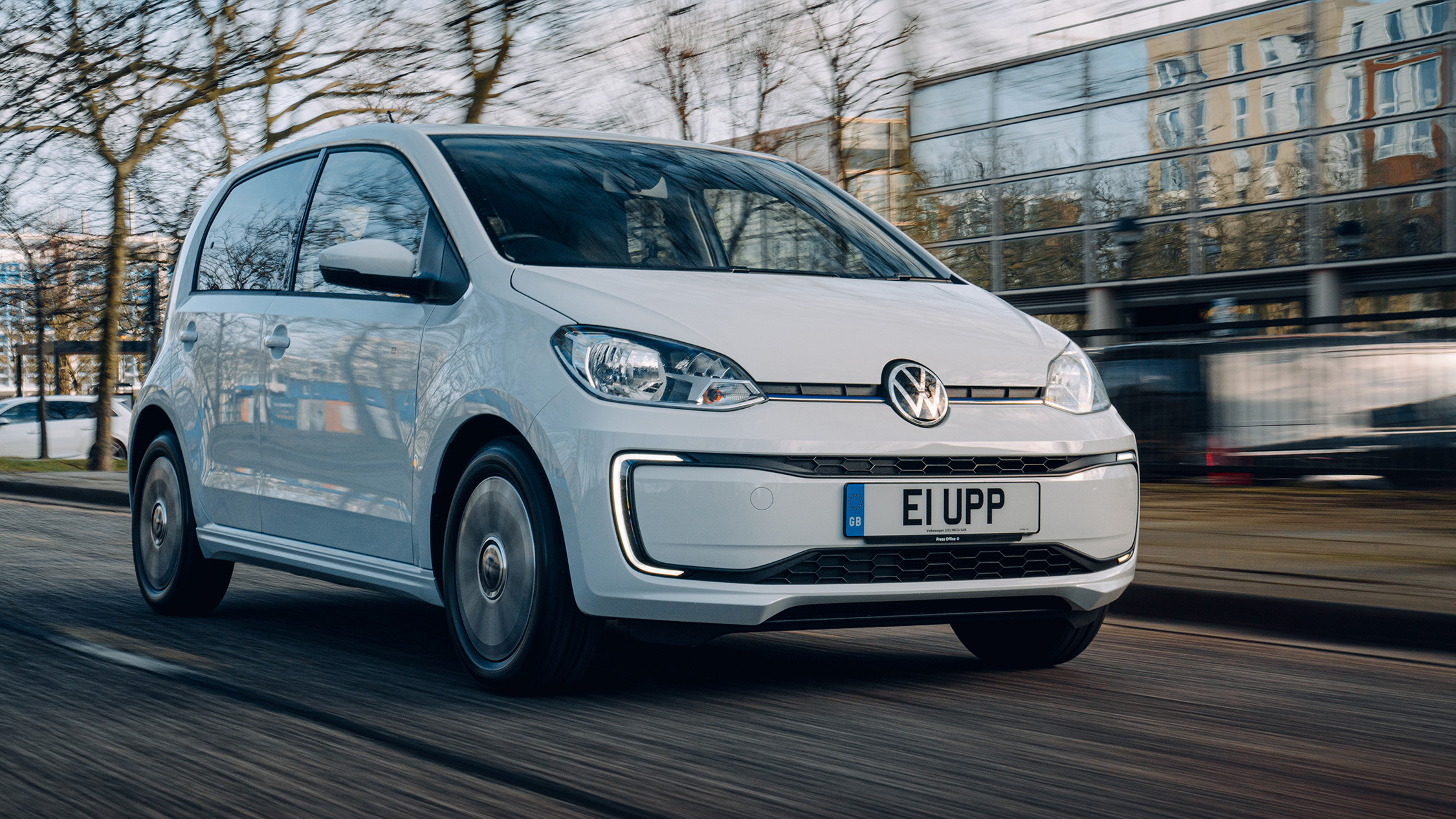
Volkswagen’s e-Up is an excellent electric car, offering a range of up to 99 miles on a single charge, along with exceptional speed and handling. It’s a very nippy and energetic car, making it perfect for stop-start city driving, as it’s good off the mark and great for manoeuvring tight turns.
The e-Up is no longer in production, meaning that you’ll only be able to get this car on the second-hand market. It’s a desirable electric car, so it can be a bit expensive, and some models will creep over £10,000, but it’s still a high-performing car.
The vehicle’s small and lightweight body makes it easy to manoeuvre, whether driving through busy city streets or winding rural roads. Additionally, the e-Up delivers powerful acceleration and quick response times, allowing you to easily keep pace with traffic even when climbing steep hills, which isn’t the case with many electric vehicles, which can start to struggle on particular terrain.
While there are many impressive features of this Volkswagen model, it does have some drawbacks as well. For example, the vehicle can run into difficulties in cold weather conditions, with the battery struggling to start, so it might not be a good option in the winter if you don’t have a garage to store it in. It can also be a little bland on the inside and needs more quality features.
Despite these downsides, the Volkswagen e-Up is still an excellent choice for anyone looking for a reliable, high-performance electric car from the used car market.
Pros
Cons
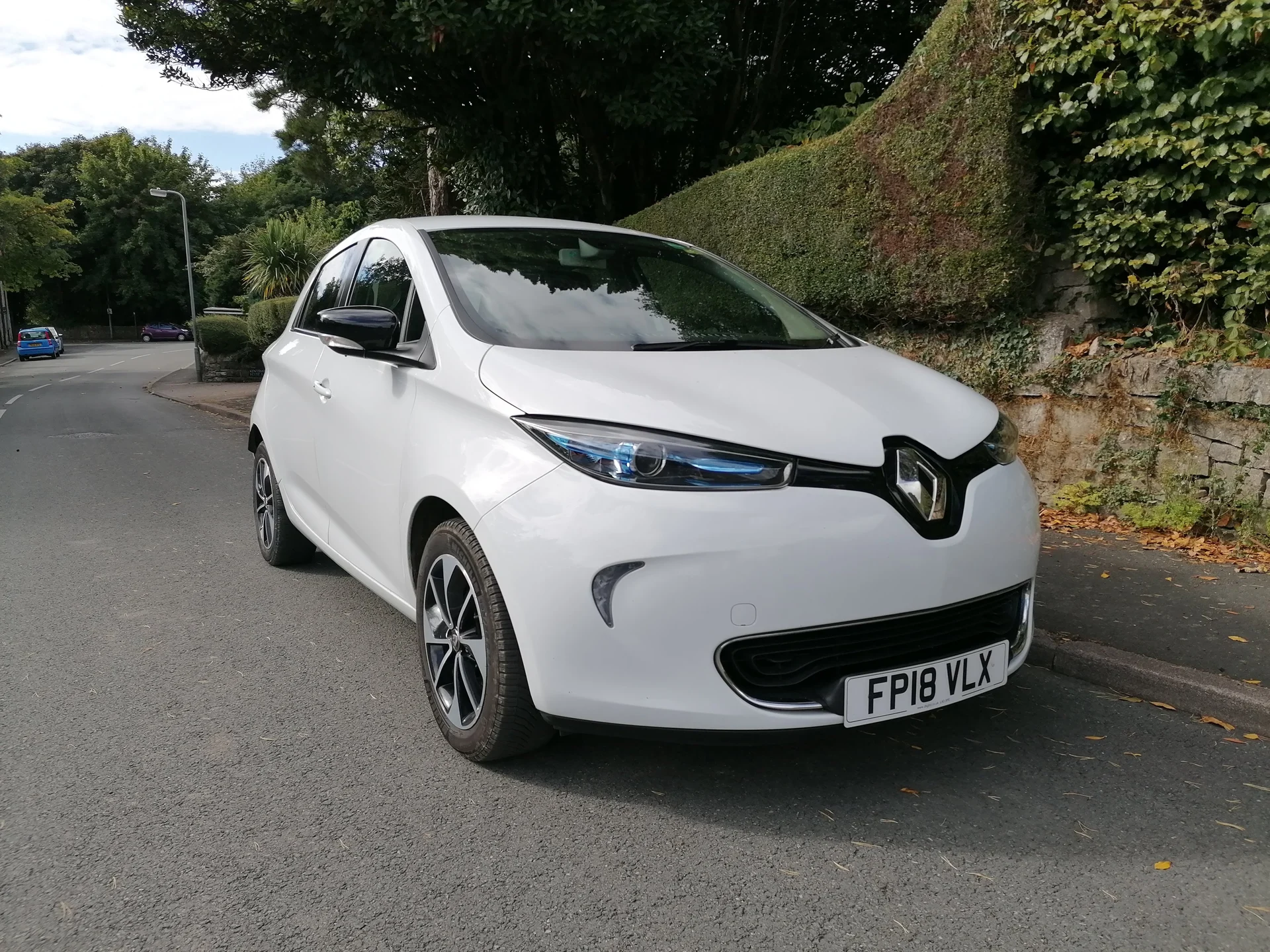
Renault has long been a leader in the electric vehicle market as it adopted the technology early, allowing the brand to perfect its processes. This meant they could create the Renault Zoe, perhaps one of their more iconic electric vehicles.
With its sleek design and impressive range of around 200-230 miles on a single charge, the Renault Zoe is an excellent choice for anyone looking for a reliable and high-performing electric car.
With this performance, the car can easily replace traditional vehicles and be called upon to be a commuter car and even a family car used for regular trips to the shops, school, and more.
In addition to its impressive performance, the Renault Zoe also boasts several other attractive features, including intuitive navigation and advanced safety systems that give drivers more confidence. It’s got plenty of space for passengers, making it versatile.
However, the Zoe is not without drawbacks. For example, the Renault Zoe can be somewhat pricey compared with other electric vehicles on the market today, with that illustrated by its second-hand price that hovers at just under £10,000. The car is also known to produce a high pitched sound from its motor, which could be annoying for some.
Despite these minor drawbacks, overall, the Renault Zoe remains one of the best all-around electric cars on the market today.
Whether you’re interested in reducing your carbon footprint or want a fuel-efficient vehicle that makes driving more fun and enjoyable, you can’t go wrong with the Renault Zoe.
Pros
Cons
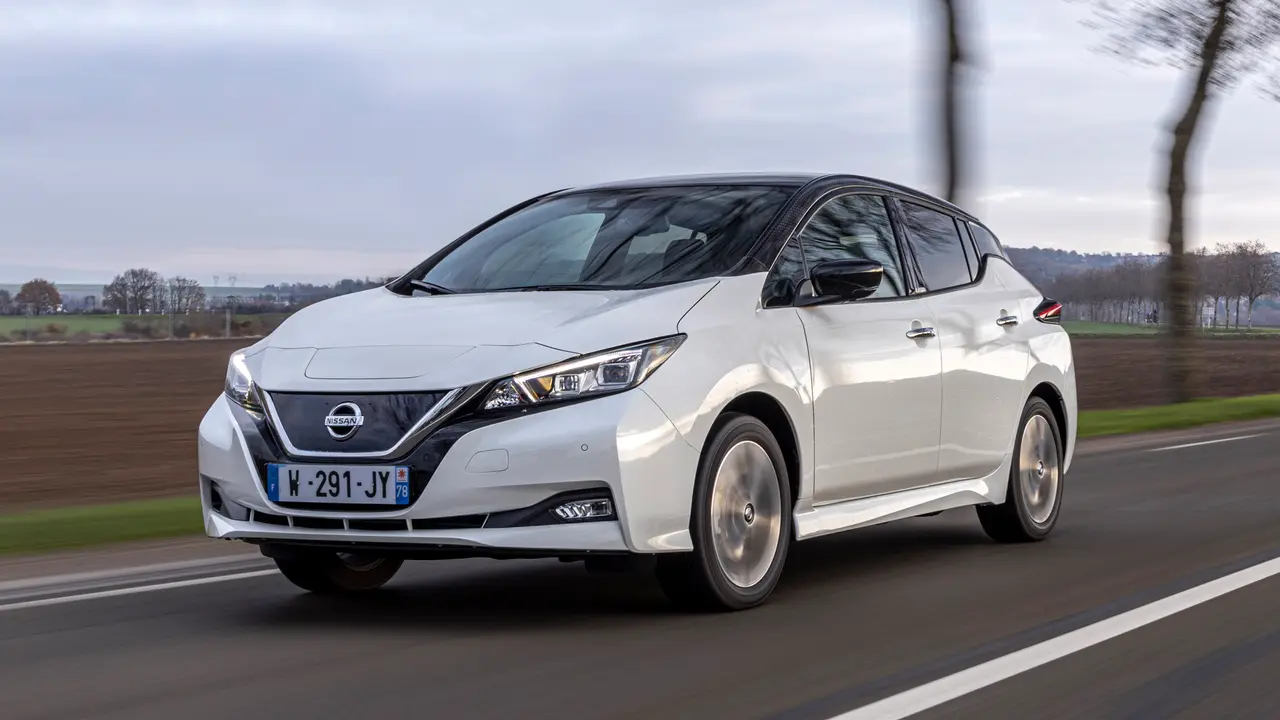
The Nissan Leaf is a relatively popular electric car on the market today. This is due, in large part, to its impressive array of features and capabilities. For starters, the Nissan Leaf is incredibly efficient and can travel up to 100 miles between charges.
This saves drivers significant time and money that would otherwise be spent on fuel or maintenance. That said, some other electric cars on the list have greater mileage on one charge. This means it may not be as well suited to longer journeys as others.
What makes the Nissan Leaf such a desirable car is its sleek and stylish looks designed with comfort and convenience in mind. Its cabin is pretty large, and the car has many advanced safety features, making it an ideal choice for anyone who wants a compact car that they can depend on.
There are, however, some negatives to the Nissan Leaf as well. While sleek and stylish on the outside, the interior of this electric car can feel a bit drab and uncomfortable at times. The ride can also be bumpy at higher speeds, which may not appeal to all drivers. Furthermore, while it’s undoubtedly more eco-friendly than traditional gas-powered vehicles, there are still limitations to what the Nissan Leaf can do regarding off-road driving or long trips.
Despite these drawbacks, overall, the Nissan Leaf is an excellent choice for drivers who want an environmentally-friendly car that also delivers on style and performance. Whether you’re commuting back and forth from work or want a reliable vehicle for running errands around town, the Nissan Leaf has you covered.
Pros
Cons

BMW is a very popular manufacturer in the UK, mainly because they produce high-performance cars with looks that blend the perfect amount of elegance and brashness. As a result of this, it’s no surprise that BMW’s electric vehicle is also a popular option.
The BMW i3 is a well-liked electric car that has garnered numerous positive reviews from experts and everyday drivers. This car enjoys many excellent features, such as its high-performance battery system, sleek and stylish design, and comfortable and luxurious interior.
If you’re looking for a premium-feeling electric car, you can’t go wrong with the i3, as it has a quality build and combines comfort with that trademark BMW performance.
However, the BMW i3 could be better and also has some downsides that should be considered when deciding if it’s the right car for you. The range is smaller than many other electric cars of the era, requiring more charges and thus will struggle on longer distance journeys.
That said, the car will perform brilliantly with great power and steering, it just won’t last long. The car can also be pretty expensive due to the brand, and many on the second-hand market may be a tad more expensive than £10,000.
What makes the BMW i3 a good option is that it stands out in terms of safety features, with its advanced airbag system and strong seatbelts and brakes.
Overall, the BMW i3 is an excellent option for drivers looking for a top-quality electric vehicle with plenty of style and performance. The BMW i3 is available at a great price from Cazoo or Heycar.
Pros
Cons
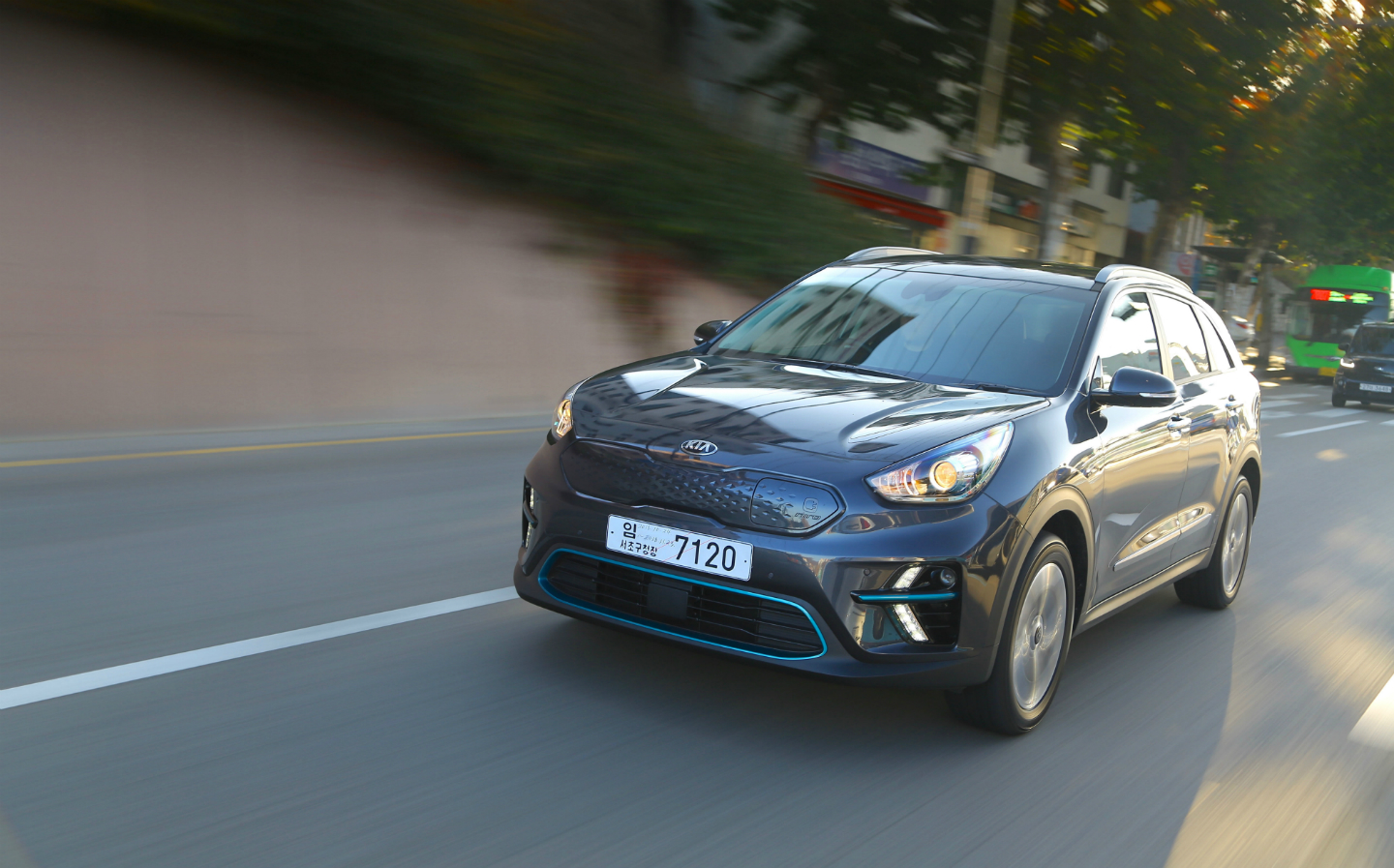
The Kia e-Niro is one of the most popular electric cars today, which shows because it typically garners a large price on the second-hand market. This car can be a bit tough to get under £10,000, although there have been options available if you’re patient enough to scout them out.
The popularity and price of these cars are due to their combination of excellent performance and comfort. Thanks to its sleek, aerodynamic design and lightweight materials, this car is also incredibly efficient, with a driving range of over 250 miles on a single charge, making it a viable option for various uses.
In addition, the Kia e-Niro boasts a powerful battery and motor that allows it to accelerate quickly and smoothly, which helps when pulling away from traffic lights in towns and cities. It also has an excellent top speed, making it a great option when on the motorway.
Despite these impressive features, this vehicle also has some drawbacks. As stated earlier, the Kia e-Niro can be quite costly upfront.
It’s an investment and should even itself out after time due to the low running costs. Additionally, the interior cabin of this car is somewhat compact and feels less luxurious than other electric vehicles on the market.
Despite these issues, overall, the Kia e-Niro is an excellent choice for anyone looking for an easy-to-use car with high-performance capabilities.
Pros
Cons
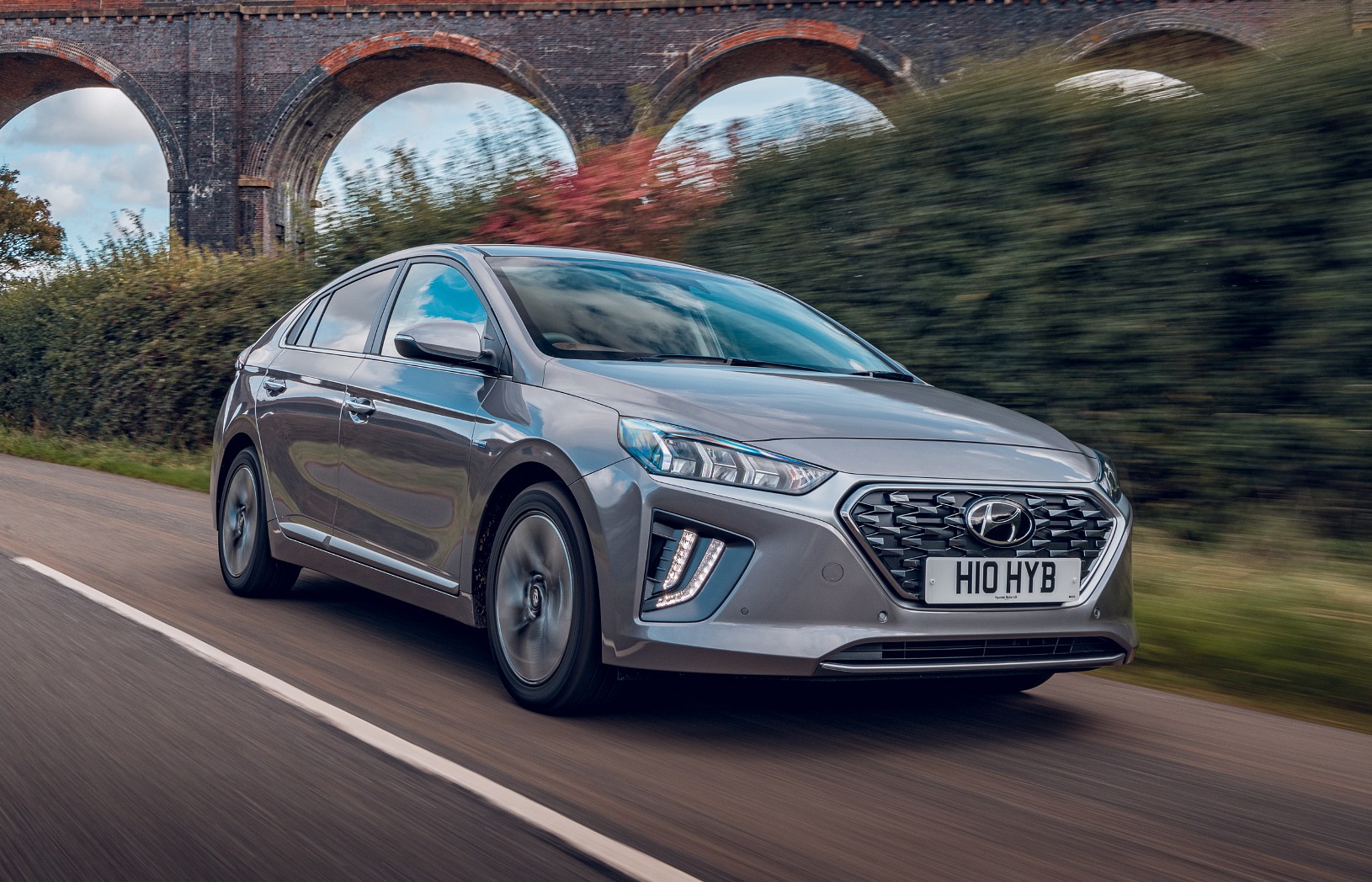
The Hyundai Ioniq Electric is a top-notch electric car that is often overlooked in favour of more established brands and models. This isn’t a car you should ignore, as it offers many excellent features and benefits for drivers.
One of its key strengths is its impressive range, averaging about 183 miles, which allows you to travel long distances without worrying about charging up along the way. That said, it’s not the best range out of all these cars, but it’s undoubtedly good enough.
Additionally, it boasts agile handling and a smooth ride, making it an ideal vehicle for city and motorway cruising. It’s responsive, helping to make the driver feel confident and safe.
Of course, no car is perfect, and the Hyundai Ioniq Electric also has some downsides. For example, it has a relatively small back seat, making it less comfortable for passengers, and even though it has excellent range, charging times can sometimes be slow. This means that it may not work well as a family car, but it can still definitely achieve as a commuter car for a single professional.
Despite these few drawbacks, however, the Hyundai Ioniq Electric is an excellent choice if you’re looking for a dependable electric car that packs plenty of power and performance in a sleek and stylish package. So if you are in the market for an electric vehicle, don’t hesitate to consider this option from Hyundai.
Pros
Cons

The Toyota Prius is one of the most well-known electric cars today because it was one of the first electric vehicles to enter the market. Its iconic status is largely due to its combination of innovative design and high performance.
The Prius has an energy-efficient powertrain that can help it travel vast distances without using much electricity, and it also boasts several advanced safety features that make it an excellent choice for anyone looking for efficient, reliable transportation for themselves or their family.
However, the Toyota Prius does have some drawbacks as well. For example, the Prius is not the best-performing electric car you can get, and it can feel a bit sluggish when getting started and also struggles to perform at higher speeds.
It’s comfortable and smooth, but also an electric car that is relatively boring to drive as it focuses on practicality rather than fun.
Despite these drawbacks, the Toyota Prius is still a great choice for anyone looking for an environmentally friendly vehicle that can easily meet their everyday needs.
It can also be found at a pretty good price when compared to other electric cars, making it a great open when searching on the second-hand market.
Pros
Cons

Peugeot’s iOn is one of the better electric cars available today, which may come as a surprise as it’s also one of the cheapest electric vehicles you can get for under £10,000.
With its sleek, modern design and powerful motor, this vehicle offers fast, efficient driving capabilities that are perfect for urban environments.
In addition to its impressive performance, the iOn also features a range of advanced technologies, including a regenerative braking system and innovative LED headlights, designed to give you more mileage from a single charge.
However, while there are many things to love about Peugeot’s iOn, it’s important to note that this car does have certain drawbacks.
For example, some drivers may find that getting used to the car’s cramped interior and limited cargo space takes time. It’s going to have little room for passengers, meaning it’s not going to be a good option as a family car.
Some people may also find the car a bit ugly, although that is down to personal preference.
Despite these minor downsides, however, most drivers will agree that Peugeot’s iOn makes an excellent choice for anyone looking for reliable and stylish transportation in an urban environment.
Pros
Cons
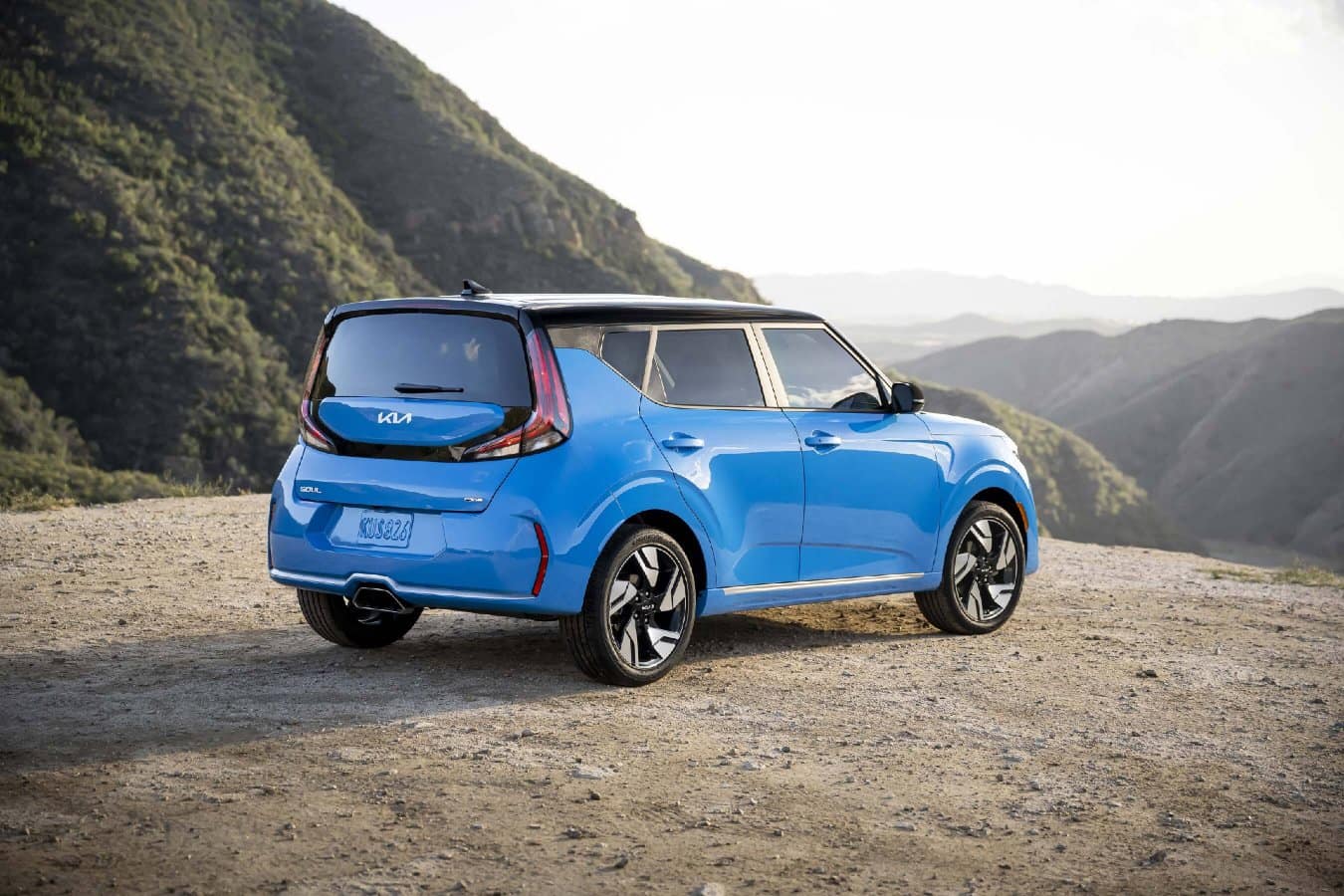
The Kia Soul has quickly become a popular choice for many drivers in the UK looking for an electric car. With its unique and stylish design, roomy interior, and high-quality features, this vehicle is a solid choice for anyone who wants to switch to electric transportation.
The Soul feels zippy and agile to drive, especially in the city. It is also pretty quiet and comfortable when cruising on the motorway, making it an excellent choice for drivers who need that versatility. It’s got great comfort and is pretty roomy, too, thanks to its SUV-like body style. You can fit plenty of cargo in the car, and it can transport multiple passengers too.
Of course, the Kia Soul does have some drawbacks. It can be on the more expensive side when compared with other electric vehicles on the market, with prices hovering at just over £10,000 (although you can find them for under this). The car also lacks advanced driver assistance systems that can help you to stay safe on the road.
Despite these minor downsides, the Kia Soul is still an excellent option for those looking to upgrade their mode of transportation, thanks to its combination of style, functionality, and affordability.
So if you’re looking for an electric car that won’t let you down, consider making the Kia Soul your next vehicle of choice.
Pros
Cons

The Renault Kangoo is a popular electric vehicle with many unique features that help to make it stand out from other similar cars in the electric vehicle market. Its biggest difference is that it’s an electric van, which can be a great option for tradespeople who need something more environmentally friendly.
One of the main pros of this van is its excellent range, which can easily reach more than 100 miles on a single charge, which helps it excel in multiple scenarios. The high torque offered by its electric motor helps to give the Renault Kangoo impressive power and speed, affording drivers an enjoyable driving experience.
Furthermore, this vehicle comes equipped with many smart technologies that help to make driving safer and more convenient. These features include blind spot monitoring, lane departure warning systems, a rear parking camera, and automated braking controls.
While there are undoubtedly many benefits to owning a Renault Kangoo, some drawbacks should be noted. For one, the vehicle can be tough to drive because of its larger, van-like body. It may take some drivers time to get used to the heavy control and higher seating position.
Additionally, some users report issues with durability over time, including problems with the battery and motor system, causing performance issues down the road.
Overall, though, the Renault Kangoo remains one of the best options for electric car buyers looking for a sleek and powerful van that prioritizes safety and convenience.
Pros
Cons
Driving an electric car has many benefits, both for the environment and for our wallets. First, electric vehicles produce significantly less greenhouse gases than traditional petrol or diesel-powered cars, helping to reduce pollution levels in our cities and towns.
Furthermore, electric cars are often more energy-efficient than gas-powered ones, meaning that they require less electricity to operate and can save you a lot of money on your electric bill.
Finally, electric cars are typically much quieter than gas-powered vehicles, making them a more pleasant driving experience for everyone. Overall, electric cars offer a cleaner, greener, and more affordable way to get around town or work daily.
One key advantage of electric vehicles is their impressive range, which can typically stretch anywhere from 100 to 500 miles on a single charge depending on the vehicle. This allows electric cars to cover much longer distances than other fuel-efficient options like hybrid cars, which typically only go 50 miles using electric power alone.
Electric cars are more expensive than traditional petrol or diesel cars to buy. The main reason is that electric vehicles tend to have a higher initial cost than their gas-powered counterparts. This can be seen in the high price tags of electric cars like the Tesla Model S or the Chevy Bolt EV.
Although fueling is cheaper, electric cars can also be expensive to repair if you have maintenance issues. Electric vehicles require costly batteries and need additional maintenance requirements that classic cars do not have.
Over time, getting a durable electric car should work out as a cheaper investment, as running and using the car is less expensive as you save on insurance, fuelling, and tax.
These are the best used electric cars you can buy in the UK for under £10,000:
| Cookie name | Active |
|---|